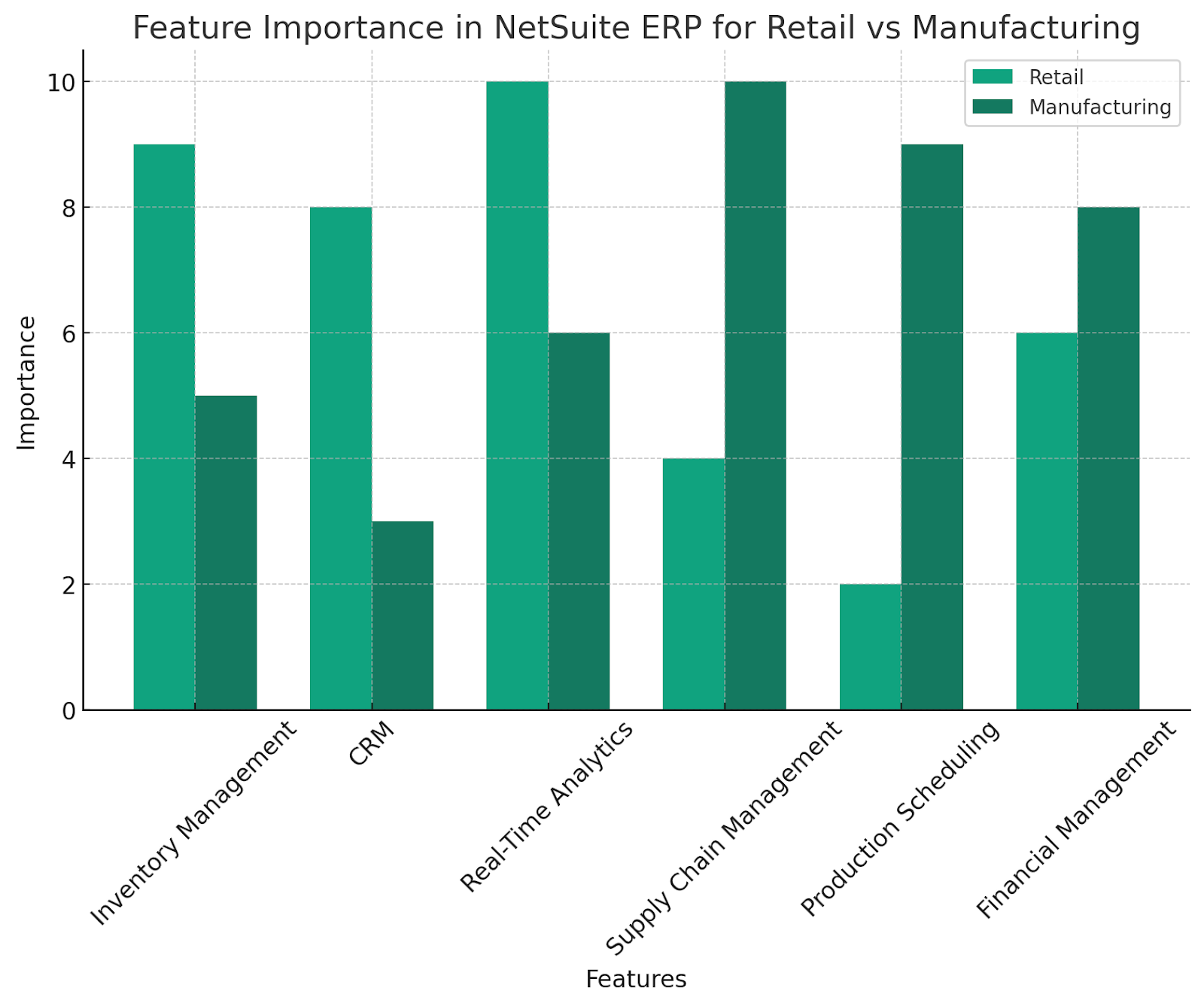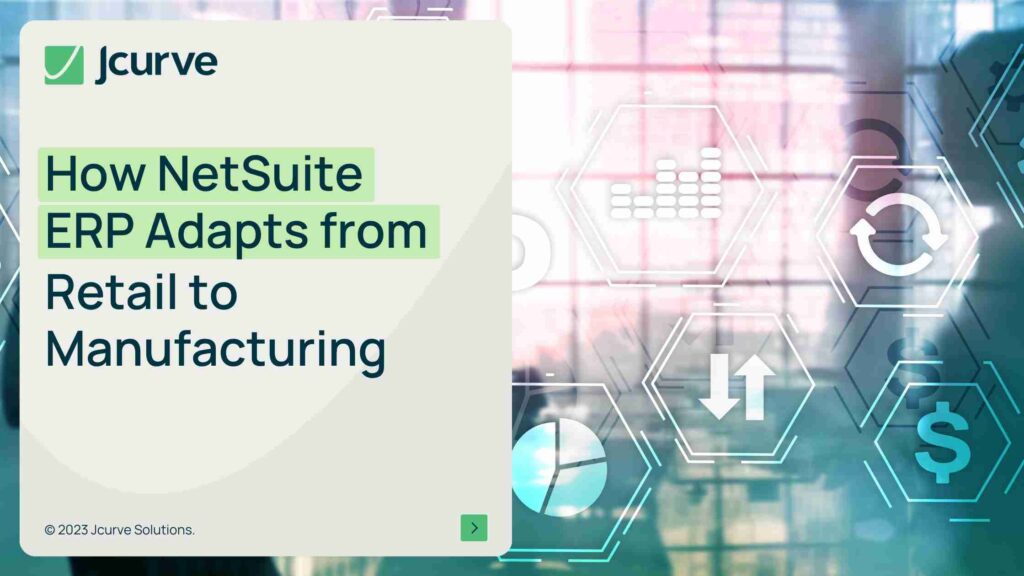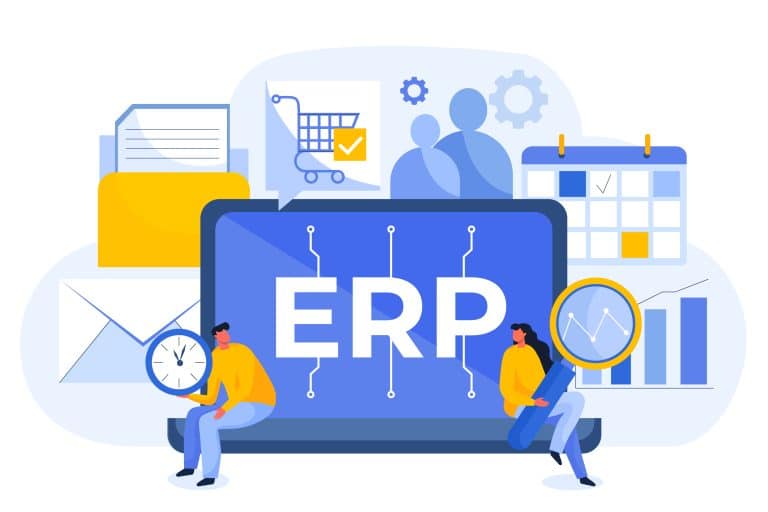NetSuite ERP, a leading cloud-based Enterprise Resource Planning system, has proven to be a versatile solution for various industries, notably retail and manufacturing. This article explores how NetSuite ERP caters to the unique requirements of these sectors, ensuring efficient operations and strategic growth.
NetSuite ERP in Retail: Tailored for Success
The retail industry faces unique challenges, including inventory management, customer relationship management (CRM), and the need for real-time data analytics. NetSuite ERP addresses these through:
- Inventory Management: Advanced tools for tracking stock levels, optimising inventory, and managing orders.
- CRM Integration: Centralised customer data that enhances customer service and marketing strategies.
- Real-Time Analytics: Instant access to sales, customer, and inventory data for informed decision-making.
How do industry-specific needs impact ERP implementation?
Industry-specific needs significantly shape ERP implementation, with NetSuite ERP offering tailored features for each sector. In retail, it provides specialised inventory management and real-time analytics, whereas for manufacturing, it enhances supply chain management, meeting unique industry challenges effectively.
Enhancing Retail Operations
NetSuite’s cloud-based nature allows retailers to access critical data anytime, anywhere. This accessibility is crucial for managing multiple store locations and e-commerce platforms.
Adapting to Manufacturing Needs
Manufacturing operations demand robust systems for managing complex processes. NetSuite ERP excels by offering:
- Supply Chain Management: Streamlined processes for efficient production flow and reduced costs.
- Production Scheduling: Tools for planning and executing production schedules, ensuring timely deliveries.
- Financial Management: Comprehensive financial tools for budgeting, forecasting, and financial reporting.

Streamlining Manufacturing Processes
With NetSuite ERP, manufacturers gain a 360-degree view of their operations, from the supply chain to production and financials, leading to improved efficiency and profitability.
NetSuite ERP: A Flexible Solution
NetSuite ERP’s flexibility allows it to adapt seamlessly from retail to manufacturing. Key features include:
- Customisable dashboards tailored to industry-specific KPIs.
- Integration capabilities with existing systems.
- Scalability to grow with the business.
NetSuite ERP’s customisation capabilities enable it to meet unique industry needs, showcasing its adaptability to various business environments. By emphasising its flexibility, this section will explore how NetSuite ERP can be specifically tailored to diverse sectors.
Future-Proofing with NetSuite ERP
NetSuite ERP stands out for its adaptability and scalability. It’s an ideal ERP choice to future-proof businesses, providing features that serve current needs in retail and manufacturing while also being capable of scaling with the business. It allows for adjustments to align with evolving market demands and industry trends, embodying the strategic foresight needed when selecting a robust ERP system designed for long-term growth.
Implementing NetSuite ERP Successfully
Successful ERP implementation is critical. For insights on implementing NetSuite ERP effectively, read our article on ERP implementation timeframes and strategies for success.
In discussing ERP implementation strategies, it is crucial to recognize common challenges and keys to success. Why ERP Implementations Fail and How to Succeed emphasises the importance of understanding these factors to avoid the common pitfalls of ERP implementation.
Furthermore, optimal timing and planning are integral to a successful ERP roll-out. An additional link to ERP Implementation Timeframes and Worst Times for Implementation can provide you with insights into the best practices regarding when to implement an ERP system to maximise efficiency and minimise disruption.
Key Takeaways
NetSuite ERP’s adaptability from retail to manufacturing illustrates its versatility and capability to meet diverse industry requirements. Its comprehensive feature set, coupled with the ability to customise and scale, makes it a powerful tool for businesses looking to streamline operations and drive growth.










